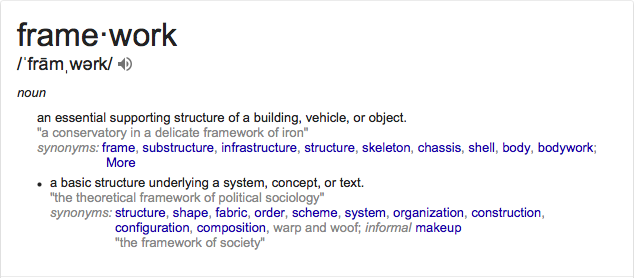
“To invest successfully, one doesn’t need a stratospheric IQ. What’s needed is a sound intellectual framework for making decisions and the ability to keep emotions from corroding that framework” – Warren Buffet
As humans, if we desire to be good at something, there comes a point where we ask ourselves, “what do I need to learn or do in order to really be good at this?” We look for “experts”. We watch TV or YouTube videos. We read books. In the end, we go out and look for helpful information that is supposed to increase our knowledge. What’s assumed then, is that we have a way of organizing all that new information in a way that creates that desired knowledge.
Investing is no different. Investing, at its core, is the direct monetization of knowledge. Indeed, knowledge and insight are the precursors to successful investing. So, what do we need to learn or do in order to generate useful knowledge and insight?
There is more daily news and information generated on the capital markets and investing than perhaps any other industry. Pricing changes happen in ticks and every tick can be analyzed for entertainment value, statistical curiosity, real impact or all of the above. Massive amounts of information are produced and consumed for FREE. If we need data, it’s out there, somewhere. Information and data on investing is almost ubiquitous.
However, only a small fraction of that information is relevant to our investment outcomes and an even smaller fraction actually impacts those outcomes in some meaningful way. So, the problem quickly becomes how to filter and organize this firehose of information in a way that makes us better and better investors.
That’s the power and purpose of a FRAMEWORK.

For an investor, having a sound decision framework on which to hang and organize information is crucial to success. Too often our emotions and human biases impair our judgement. We like stories and anecdotes. We like to read newsletters, listen to experts and go with the narrative without hanging that narrative on a consistent framework that allows us to really evaluate it.
The Salad Bar
As investing educators and institutional analyst trainers, investors come to us with all levels of engagement and experience. What we see consistently is that investors are inconsistent. Information and ideas come to them from a variety of places and that’s all good! It’s the salad bar and everyone loves the freedom of choice at the salad bar!
But there’s no organizing or prioritizing those things in such a way as to generate investments where the probability of a positive outcome is tilted in their favor.
Without a framework to organize that information, our human biases are turned loose to run amok. Our X-system thinking overwhelms our more metered C-System creating a rush to judgement, or worse, to action. Our penchant for confirmation bias has us investing in great stories vs. great businesses. Anchoring biases have us looking at a company whose stock price is down 25% in the last month as a “screaming value”. (Learn more about X vs. C System Thinking and human biases in the IOI 101 Course) All of this happens without our asking the question, “what’s really going on here?” and “do I want to own this business?”.
Framework investing steps into this breach. Nicolas Sordoni, CFA, a Portfolio Manager and Analyst at Lazard Investments wrote a research paper entitled, “Investment Frameworks: De-biased Decision Making in Equity Investing”. His research led his team to this insight:

Frameworks allow for us to apply the knowledge from some of our finest human achievements to our investment decisions – the Scientific Method (hypothesis testing), the development of First Principles and root cause analysis. Frameworks focus on the most important factors that generate durable value – operations and financial performance. Frameworks tend to minimize the impact of good narrative because they are numerically based and objectively measured. In doing these things, Frameworks organize information into knowledge and over time allow users to generate unique insight. It is that knowledge and insight that are consistently monetizable because they allow the investor to observe and learn and thereby tilt the probability of a positive outcome in their favor. Price becomes what it has always been, a derivative of the business performance. Frameworks make that relationship transparent.
Better Outcomes
It comes as no surprise then, that a good Framework outperforms the Salad Bar.
This can be easily seen by looking at the performance of the average investor and those investors who are passionate about frameworks and process. From Buffet to Ray Dalio (Bridgewater) to George Soros and James Simons (founder of Renaissance Technologies), frameworks play a vital if not central role in their success. You will note that these investors all invest differently from one another – they have different investing frameworks. But in all cases, the process is disciplined and repeatable and focused on organizing information into knowledge they can effectively monetize.
We’ll talk about what we believe makes a “good” framework in upcoming pieces, but for now it’s clear that investing frameworks have real power. ANY investor can do this. It just takes time and a commitment to developing your framework based on observed success, experience and expertise. Buffet was right when he said it doesn’t take a stratospheric IQ to be a good investor. It takes a consistent, repeatable framework that one uses to organize information, learn from it and turn it into monetizable knowledge.
More to come on this important topic. In the meantime, Invest Intelligently!
